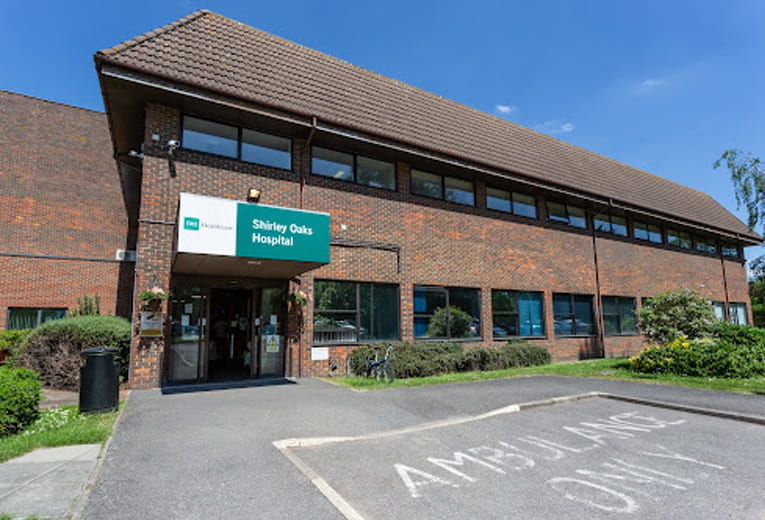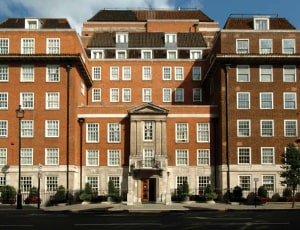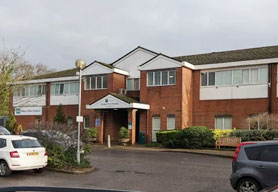Treatment cost

Shirley Oaks Hospital is a multispeciality hospital established in 1986 and is part of Circle Health Group. The hospital is located on the outskirts of Croydon in Shirley Oaks Village. The hospital offers a wide range of diagnostic and treatment services to patients allowing them to choose the services that they wish to avail in a hassle-free manner.
The hospital is a multispecialty facility that offers all types of treatments from 15+ specialties, including general medicine, ophthalmology, gastroenterology, and dermatology. Shirley Oaks Hospital is associated with 80+ consultants from within the UK.
The hospital offers services and treatments to patients under the age of 18 years and above.
Shirley Oaks Hospital offers a very warm and comfortable environment to the patients, from the moment they enter the building, whether for consultation or inpatient stay.


We, The London Clinic family, take pride in our reputation as a multi-disciplined healthcare facility. With skilled nurses and expert consultants, our medical teams are always focused to deliver the best individualized medical care. More than 1,000 nursing, clinical, and support staff are currently working with us to give our patients an extensive range of treatments. We use cutting-edge technologies to ensure a comprehensive range of healthcare services. Not only that, in order to make your stay with us comfortable enough, we equip our patient bedrooms with:
Patients from all over the world fly to us to get their procedures done by our specialist doctors, which is why we also provide our patient's concierge services. Our concierge services include:
The London Clinic has a zero-tolerance policy when it comes to hygiene and cleanliness. Our dedicated housekeeping team cleans every room every day between 8.00 am and 5.00 pm. They are also entitled to supply fresh towels every day and clean the rooms properly between patients.
We also have a day surgery unit based on the third floor at 20 Devonshire Place to make sure a hassle-free surgery as well as post-surgery care for our patients. Our cancer care unit at 22 Devonshire Place is also among our key services.

Bishops Wood Hospital is a 42 bedded acute care unit located in Middlesex, UK. Offering treatment and diagnostic services for more than 25 specialties, the hospital was established to offer the highest standard of care and services to patients from across the world. The hospital is a part of the private Circle Healthcare Group, which is a leading provider of state-of-the-art healthcare services and has multiple hospitals and clinics across the world.
The hospital has over 120 specialists and surgeons working with them to provide a variety of surgical and non-surgical treatments to people. The hospital is particularly known for a variety of orthopedic procedures that are carried out, including knee and hip surgery, hand and wrist surgery, foot and ankle surgery, and shoulder and elbow surgery. The hospital has been instrumental in slowly expanding its medical service and now offers treatments to patients requiring primary, secondary as well as tertiary care.
The hospital boasts of its team of medical and nursing staff, which is available 24 hours a day. Every medical specialist is a part of a multidisciplinary team, which includes specialists from the in-house radiology and physiotherapy department.
Facilities Provided:
Kidney cancer, also called “renal cancer”, is a condition where the cells in the kidneys grow out of control. So, forms a small mass also called a renal cortical tumor. This tumor could be malignant or benign. A malignant tumor is cancerous and may spread to other parts of the body. A benign tumor is also cancerous but it does not spread to other parts of the body. A benign tumor can grow but won’t spread.
The exact reasons behind most kidney cancers are not completely understood. Doctors believe kidney cancer starts when certain cells in the kidney change their DNA, like a set of instructions inside the cell(mutation). These changes signal the cells to grow and multiply quickly. As these abnormal cells gather, they create a lump called a tumor, which might go beyond the kidney. In some cases, these cells can break away and travel to other parts of the body, a process known as metastasis.
Once you are diagnosed with kidney cancer and know the stage of cancer, your doctor and you can plan your treatment. Your doctor may refer you to a specialist such as a urologist, a radiation oncologist, or a surgeon for treatment. There are many types of kidney cancer treatment. However, in most cases, surgery is the first step. Sometimes, even if the surgery removes the entire tumor, your doctor may recommend additional treatments, to kill the remaining cancer cells, if any. Here below are a few types of treatment for kidney cancer.
To tackle kidney cancer, the first step often involves surgery to remove the cancer cells. If the cancer is only in the kidney, surgery might be the most preferred treatment needed. But if the cancer has spread, there could be other treatments recommended.
The patient and treatment team can discuss what's the best procedure depending on the situation. The right plan depends on things like your overall health, the type of kidney cancer you're dealing with, how far it has spread, and what you prefer for treatment.
When kidney cancer comes back or spreads, curing it becomes challenging. However, treatments aim to control cancer and enhance comfort:
After your procedure, the doctor and team check with you regularly to monitor your incision and evaluate your comfort level.
Generally, the patient may resume consuming solid food within 24 to 48 hours of surgery. Most patients can be discharged from the hospital after 1 to 2 nights in the hospital and may continue recovery at their own home. Patients with larger tumors might expect to stay in the hospital for 2-4 days. will likely have a follow-up appointment in 2 to 4 weeks. At this time, the surgeon will suggest when could return to work.
Because physical activity helps boost blood circulation and also decreases the risk of clots. Patients are encouraged to exercise during their recovery from kidney cancer surgery.
Ask your healthcare adviser for the best multiple options and choose the one that meets your expectations
Kidney Cancer Treatment cost in London varies from one hospital to the other. The Kidney Cancer Treatment package cost usually includes all the expenses related to pre and post surgery expenses of the patient. The Kidney Cancer Treatment cost in London includes the cost of anesthesia, medicines, hospitalization and the surgeon's fee. Post-surgical complications, new findings and delayed recovery may have an impact on the total Kidney Cancer Treatment cost in London.
There are several best hospitals for Kidney Cancer Treatment in London. The top hospitals for Kidney Cancer Treatment in London include the following:
After discharge from the hospital, the patient has to stay for another 23 days in the country for complete recovery. During this time, the patient undergoes medical tests and consultations. this is to ensure that the treatment was successful and the patient us safe to return.
London is considered to be one of the best places for Kidney Cancer Treatment in the world. This is because of the availability of some of the best doctors, advanced medical technology and good hospital infrastructure. However, some of the other popular destinations for Kidney Cancer Treatment include the following:
Apart from the Kidney Cancer Treatment cost, there are a few other daily charges that the patient may have to pay. These charges may vary from 55 USD per person.
The average duration of stay at the hospital after Kidney Cancer Treatment is about 5 Days for proper care and monitoring. The patient is subjected to several biochemistry and radiological scans to see that everything is okay and the recovery is on track. After making sure that patient is clinically stable, discharge is planned.
There are about 2 Hospitals Kidney Cancer Treatment hospitals in London that are best known for their services. These hospitals have the required infrastructure and a decided Kidney Cancer Treatment unit where renal failure patients can be treated. Additionally, these hospitals are known to comply with the international standards as well as local legal requirements for the treatment of patients.
Some of the most sought after doctors for Kidney Cancer Treatment in London are: